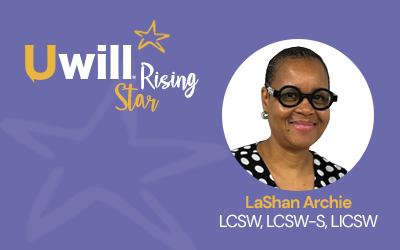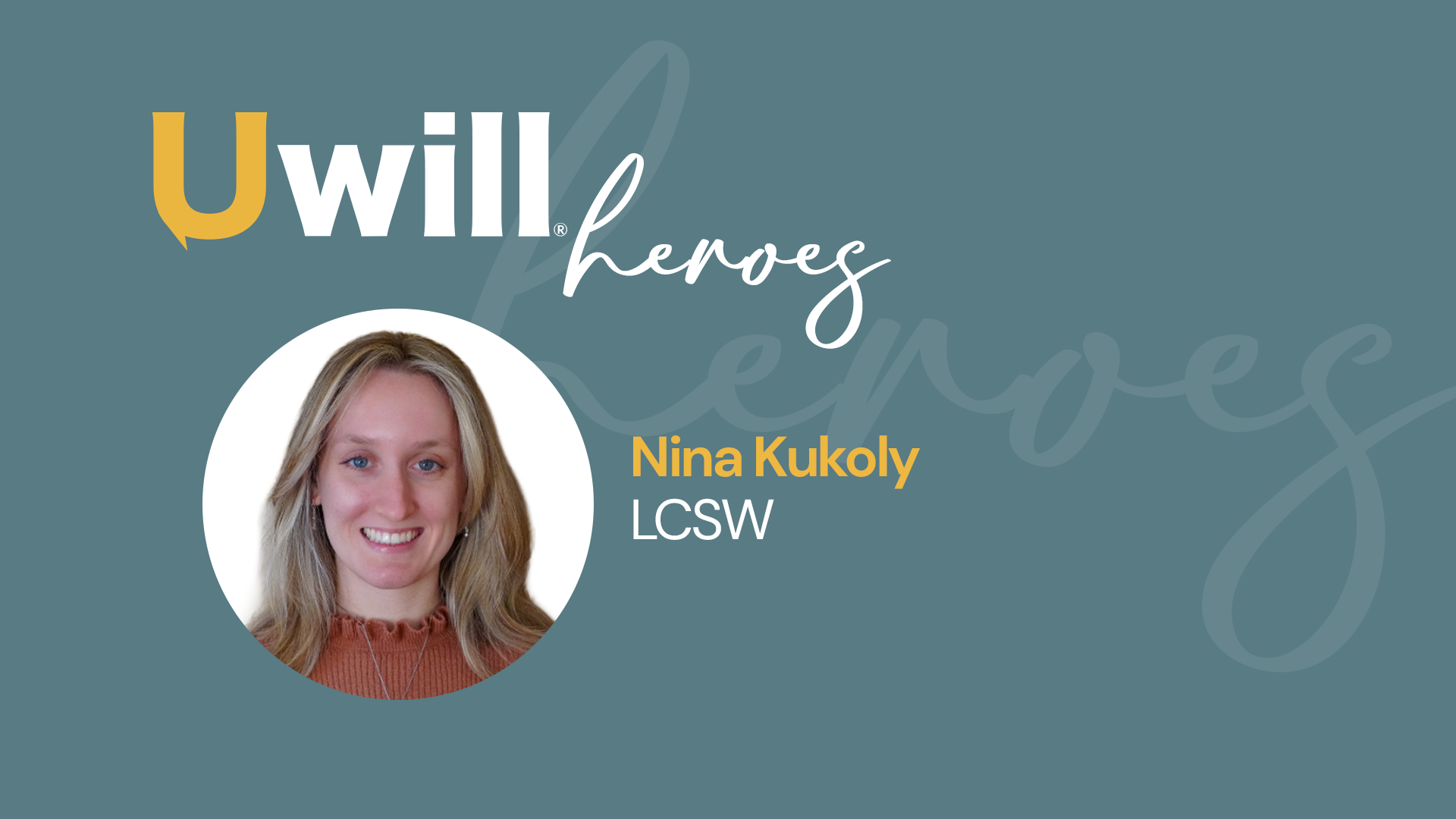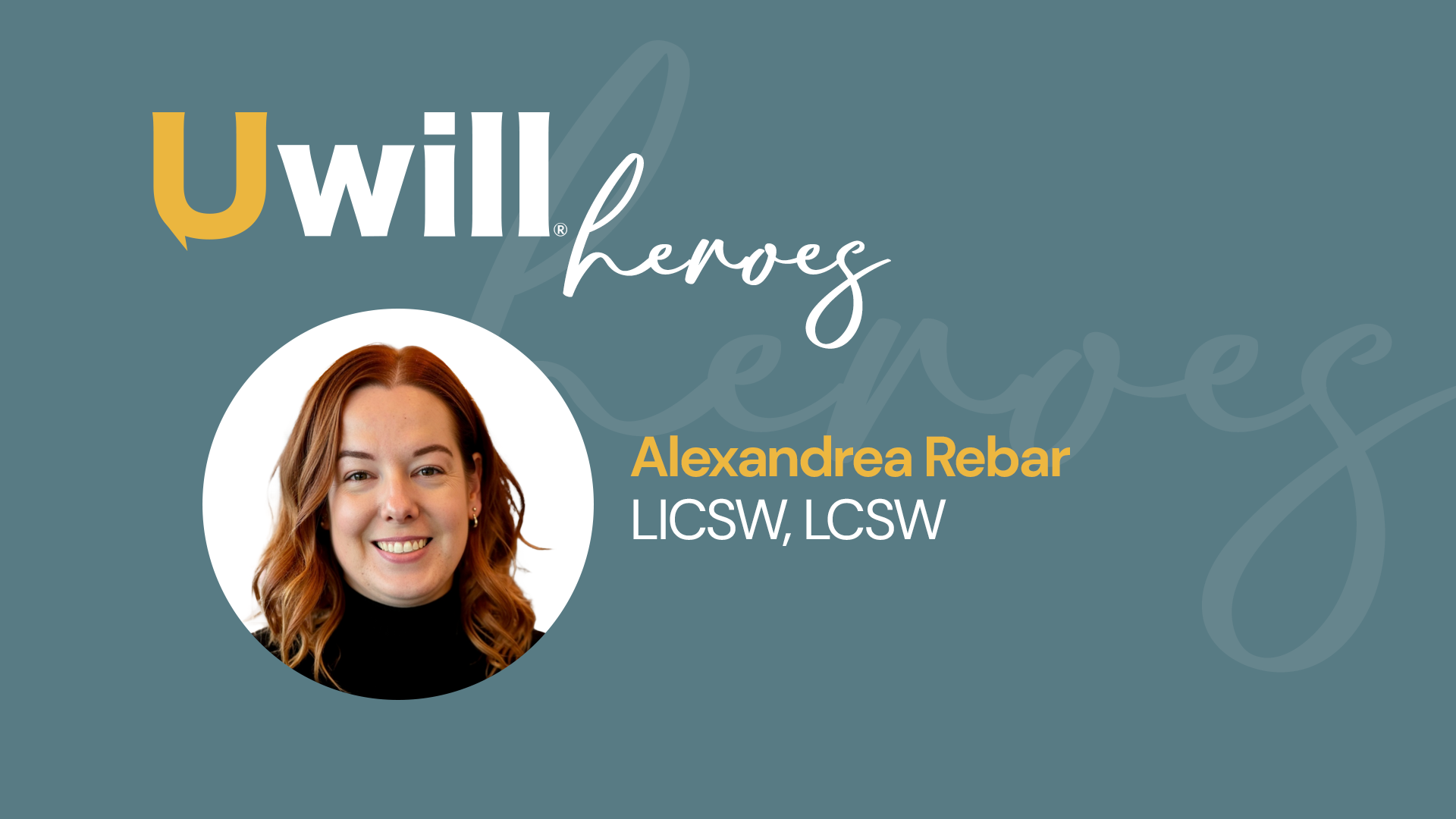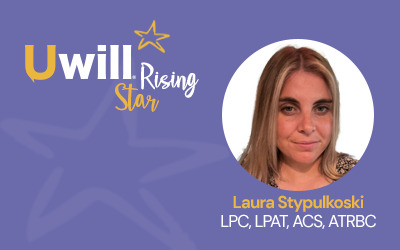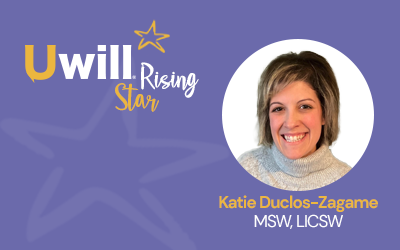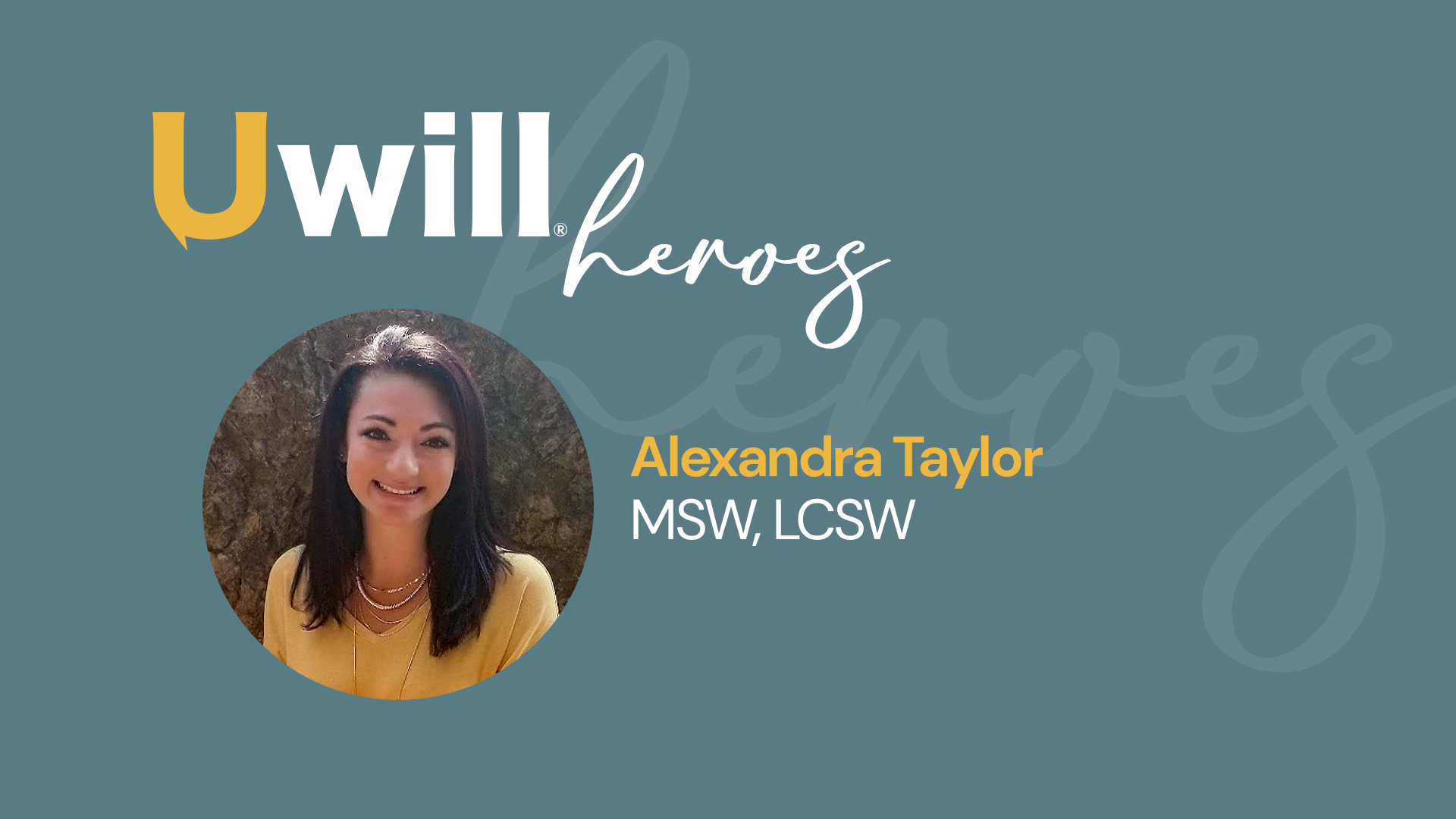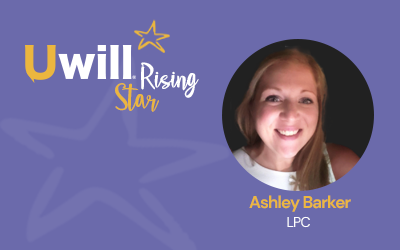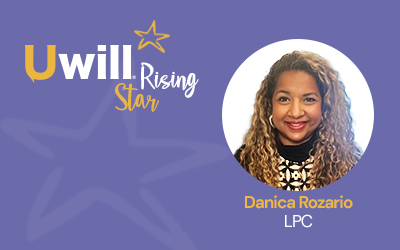
August Rising Star: Danica Rozario, LPC
Congratulations Danica Rozario! Since joining the Uwill team Danica has completed over 200 sessions across New Jersey.
Check out our interview with Danica where she talks about the importance of students being able to speak with confidentiality, her reaction to 30-minute sessions, and how not all stress is a bad thing.
What excites you the most about working with Uwill?
This is an easy one! The diversity of the population that I get to work with. It is very exciting to have zero of the monotony that can come with working with a niche population. Specializing is great but then what ends up happening is you’re working with the same type of client, experiencing the same presenting problem, and it can be a bit flat sometimes. So what I love about this role is the diversity and presentation. It’s different ages. It’s different races. It’s different stressors. It’s different stages of life. I love that I’ve had not just a lot of traditional age college students, but a lot of grad students, a lot of folks returning back to higher ed. It is unpredictable and exciting and I truly do enjoy that.
Could you elaborate the importance of a student being able to access a platform like Uwill?
I have numerous clients who have been very vocal about the fact that they have only sought services on Uwill because of the privacy and confidentiality factor. These were a lot of BIPOC students and these folks have been truly my most clinically acute, my most vulnerable, and the most deserving clients that I’ve worked with. I really commend and encourage the involvement and treatment for these particular clients because it’s an avenue that would not be accessible otherwise. These are folks who are very open about the fact that their family does not believe in therapy or that their mindset is not shared with folks whose mindsets are important to them. I think that it is wildly important for personal growth as well as safety for self and others that folks have access to this type of platform with the specific privacy protocols that it has.
What aspect of your work would you say that you enjoy the most?
Honestly, I would say that my favorite part of my job is listening and finding very quiet resilience in the person who I am speaking to and then obviously identifying it.
What is the most important lesson that you feel that you’ve learned from your work?
I never knew how much processing and growth of insight could actually be done in 30 minutes. I was really skeptical about this and I have had truly transformative sessions that at the 22-minute mark I’m thinking “that was intense and productive and really rewarding!”
What was it that first attracted you to working with Uwill?
If I’m being honest, it was 100% the flexibility of scheduling. I’m a full-time private practicing therapist and the flexibility of being able to plug and supplement my schedule with clients from Uwill on a day that my other practice would have been quiet is super helpful.
What impact has Uwill had on you as a professional?
I have about 15 years of experience working with 5 to 18 year-olds in a hospital-based clinical setting and then my private practice is mostly adults 25 and older. So Uwill was this interesting segment of the population that I didn’t have much access to. This is normally a pretty difficult-to-engage population unless they really want to talk and I think just professionally I feel really well-versed now after doing this for not even that long with this particular 18 to 25 year-old population. It has really been wonderful for me professionally.
What advice do you have for students who may be stressing out about the beginning of the upcoming school year?
Not all stress is a bad thing. Sometimes the nervousness, the excitement, the anxiety, even sometimes an upcoming school year can be exactly what we need to motivate us and to fuel some of our success on our drive. I would encourage folks to tap their social supports, whether it’s one friend or a cousin or a group of friends, whoever it is, tap them in terms of being mindful of their own cheerleading skills. Sometimes supporting friends can have very, very personal impacts that can help us too. Gives us purpose sometimes when we are in service to others. So sometimes supporting other people makes us feel like we can deserve that support too. I think that that’s a tip.
Lastly, time management I think is just like the number one thing for, quite frankly, anybody and everybody. If folks can look at time management as like a Jenga-esque situation where we’re trying to have the pieces be balanced, our academic life, our social life, our wellness, movement life, our alone time, these are all things that we want to try to fit into this game that we’re playing on a weekly basis and we just reflect at the end of the week “what pieces was I missing this week?” and then we apply it to the next one? Be a little bit competitive with ourselves, be reflective. These folks are much more than just students so make sure they are watering every part of their garden.
To learn more about becoming a counselor with Uwill, click on the link below.
Share this:
![]()
Uwill is a Teletherapy Educational Partner of NASPA
![]()
Uwill is the Exclusive Teletherapy Education Partner of the Online Learning Consortium
Resources

Copyright © 2025 Uwill | 1075 Worcester St, Natick, MA 01760 | 833-99-Uwill
